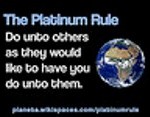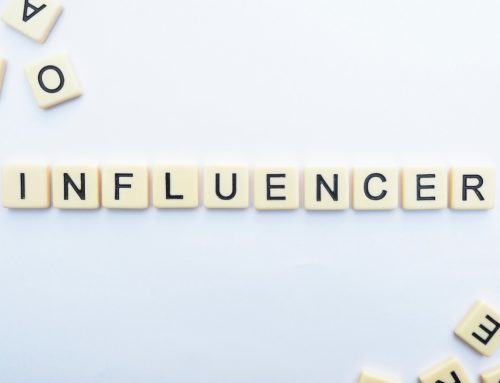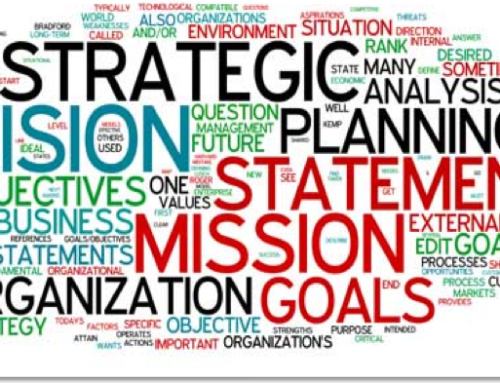
(For the record, I don’t watch the program regularly, mostly because I find just about everything about it repulsive to me, as a public relations professional now teaching the next generation/s of PR pros.)
Everything from computer hacking to false representation – and probably accessory to murder – was covered in this particular program by what appears to the unknowing public as a “day-in-the-life” of a successful public relations/lobbying firm.
Wow! Sorry loyal “Scandal-ites.” I’ve been known to “wax unlyrical” time and again with my view of what comprises good/ethical/professional public relations. Nothing… no way… no how… in this episode was representative of what I, and thousands of other public relations practitioners around the world, would agree represents our profession.
“Ethics,” in a nutshell, is about doing the right thing.
Not necessarily the most expeditious thing. Not always the most convenient thing. But it’s the right thing. Because ethics and accountability in public relations are non-negotiable.
The Public Relations Society of America has a comprehensive section on its website dedicated to the subject of ethics complete with a “Code of Ethics” and examples of unethical behavior to help readers fully understand the meaning behind each article of the Code.
Sadly, not every PR practitioner abides by this Code… just as not every doctor abides by the ethical guidelines of the American Medical Association. We’re all humans (at least most of us are) and, as the saying goes, “to err is human.”
Back to “Scandal.” I realize it’s a TV program, and today’s viewers don’t want to watch some pablum-laced program about an organization doing the right thing. BOR-ing!
The problem, though, is that not everyone realizes this is most assuredly NOT an example of our profession as a whole.
Those of us who care, do our utmost to ensure that what we do and how we do it on behalf of clients or employers is beyond reproach. But apparently that doesn’t play well on television.
I recently sounded off for PRSA on my view of what I saw as a challenge facing public relations professionals in 2013. My target was “accountability,” and I waxed eloquent (or at least I think so…take a look and let me know what you think) on the topic.
Since the publication of my views, ironically, the Boston Globe (my hometown paper) has been bursting at the seams with article after article about local government officials, religious leaders, professional athletes, and educators (oh, my) who chose to bend the rules or look the other way in the conduct of their business or personal affairs (pun partially intended).
Fortunately, none of the cast of characters was a public relations practitioner, but aspects of public relations…public perceptions…public trust…public opinion…showed through in each and every situation.
Ethical public relations practice is not an “either/or” thing.
PRSA’s guidelines cover a variety of scenarios, and it doesn’t take a rocket scientist to draw analogies to situations that are not specifically described.
One of the medical profession’s guidelines resonates with me when I’m thinking about ethics, accountability, and public relations,
“First, do no harm.”
Failure to consider the ultimate consequences of “bending the rules” does harm… to the publics, who rely on honest, open communications for informed decision making, and to our profession, which relies on the trust of that public for its own continued effectiveness.
![[EVENT]: PR Hacks for Small Biz (online)](https://shonaliburke.com/wp-content/uploads/2021/06/FB-Ad-1200x800-01-01-01-Copy-500x383.jpeg)








[…] I believe it is important for my personal development and the development of other future PR professionals to integrate this code of ethics into assignments, internships, blogging and any other educational tool so that in the field, our practices will be fundamentally ethical. According to Shonali Burke, ethics and accountability in public relations are non-negotiable. […]
[…] blog, “PRSAY,” Deirdre Breakenridge’s excellent “PR Expanded,” Shonali Burke’s “Waxing Unlyrical,” and his own blog, “A Professor’s […]
[…] if you’ve read any of my previous posts for this blog or for the others I contribute to (PRSAY, Waxing Unlyrical, PR 2.0Strategies), I’m a story-teller. So I, for one, always have a story to relate to my […]
RFIPR Thanks so much for sharing my #WUL post! shonali
jkitte Thanks for sharing my #WUL post, Julia!
KirkHazlett Thanks for writing it!
chillygal Thanks for sharing my #WUL post, Jeri!
KirkHazlett Really great post, Kirk. I’m going to post on our PRSA Fairbanks group as well.
mdbarber Thanks for sharing my #WUL post, Mary. Hope all’s well! shonali
KirkHazlett life is good. Waiting for spring. #Iditarod finishes tonight. shonali
mdbarber shonali We’ve given up on spring and simply are biding our time until summer falls on us. Countdown to Taipei vacation is on.
KirkHazlett that sounds fu!
KirkHazlett fun!
KirkHazlett When do you leave? mdbarber I think it’s time for another trip to Alaska, eh? ;) For me, and for you to DC!
shonali mdbarber To Taipei on May 21. Back home June 15. Side trip to Singapore May 28-June 2.
KirkHazlett That’s wonderful! mdbarber
shonali I agree. Or, KirkHazlett could take us with him to Taipei!
mdbarber shonali It’s a tough assignment…already have half-dozen new restaurants to try plus some sightseeing…places we haven’t been!
KirkHazlett see? It sounds as though you really need help. shonali
mdbarber KirkHazlett LOL!
mdbarber KirkHazlett Or ALL of the above!
shonali I mean…I’ll pay for my own food. Wouldn’t you? KirkHazlett
mdbarber KirkHazlett Definitely
shonali mdbarber One of these days, my friends, we’ll persuade PRSA to schedule a conference in one or the other location. In the…
rachaelseda Thanks for sharing, Rachael!
KirkHazlett Always!
BriannaKuplent Thanks for sharing, Brianna!
SpinSucks Thanks, as always, for sharing!
JudyBott Thanks for sharing, Judy.
KirkHazlett :)
You only have your word and honor in the end KirkHazlett It takes so long to get it back if you toss it away. Ryan Holiday is a great example of sleaze. Who would hire him but a sleazy business nowadays.
You don’t have to be unethical even if you work for some clients that might be polarizing.
Great post!
HowieG KirkHazlett Thanks, @HowieG. It can be a tough path to follow, but, in the end…
Thanks for reading and commenting!
“shonali KirkHazlett Thnx for shng. I couldn’t work w/out integrity & don’t know how others are successful who don’t have it. Gr8 article.
@CarrieHillPR shonali KirkHazlett As one of my favorite lines from “The Kind and I” goes, “It is a puzzlement,” Carrie. I tell my students that one of my saving graces as a PR professional has always been that my face turns beet red when I “bend” the truth. Therefore, I don’t! Thanks so much for reading and commenting!
shonali Thanks, as always, Shonali!
MattLaCasse Thanks for sharing, Matt.
KirkHazlett You bet, Kirk!
shonali KirkHazlett Have a good day
Amen, Kirk. While I do watch “Scandal”, I totally agree that it misrepresents pretty much everything about PR. More and more people are concerned with getting results for clients, no matter the cost…and worse yet, the clients don’t care. I wish this was an outdated topic that no longer needed to be discussed. I fear it is one that will always be relevant.
Thanks very much, Matt. It IS an intersting show in that I can always find something to rant about the next day in my public relations classes! And, sadly, it DOES show the seamier side of our profession…or ANY profession, for that matter. As long as human beings are “human,” there will always be someone somewhere who will be tempted to take the “easy” way out of a situation. All we can do is continue waving the flag of ethical, responsible business practice. I really appreciate your reading and commenting!